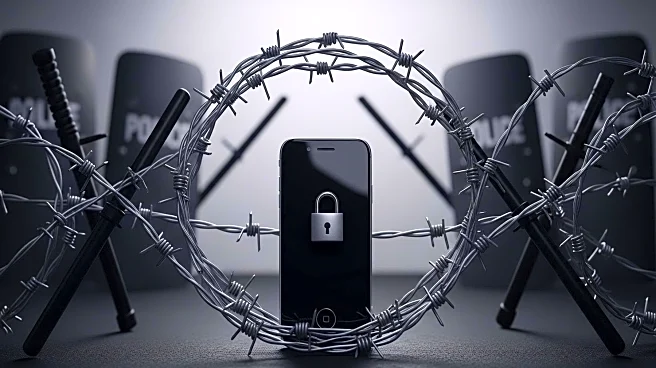What's Happening?
In Kathmandu, Nepal, police opened fire on protesters demonstrating against a government ban on social media, resulting in at least 11 deaths and dozens of injuries. The ban affects platforms like Facebook, X, and YouTube, which were blocked for failing to register with the government. The protest, dubbed the 'Gen Z rally,' saw tens of thousands of participants demanding the lifting of the ban and criticizing the government's move as censorship. The government has proposed a bill to ensure social media platforms are managed responsibly, but rights groups argue it infringes on freedom of expression.
Why It's Important?
The social media ban in Nepal has sparked significant unrest, highlighting the tension between government regulation and freedom of expression. The protests underscore the critical role of social media in modern communication and the potential consequences of restricting access. The government's actions have drawn criticism from rights groups, who view the bill as a tool for censorship. This situation reflects broader global debates on the balance between regulation and free speech, with implications for how governments manage digital platforms.
What's Next?
The government has announced a curfew around key areas in Kathmandu, including the Parliament and presidential house, to control the situation. The proposed bill will be debated in Parliament, and its outcome could influence future regulations on social media in Nepal. The international community may respond to the government's actions, potentially affecting Nepal's diplomatic relations and its approach to digital governance.









